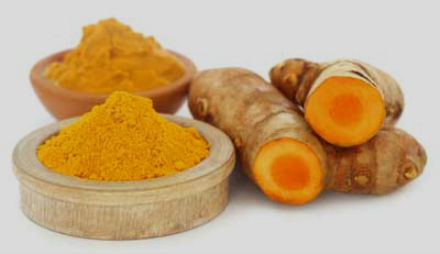|
NOVIDADES
Attaching curcumin, a component of the common spice turmeric, to nanoparticles can be used to target and destroy treatment-resistant neuroblastoma tumor cells, according to a new study published in Nanoscale ("Nanoparticle delivery of curcumin induces cellular hypoxia and ROS-mediated apoptosis via modulation of Bcl-2/Bax in human neuroblastoma"). The study, conducted in partnership by researchers at Nemours Children's Hospital and the University of Central Florida, demonstrates a potentially novel treatment for neuroblastoma, the most common cancer in infants.  Curcumin
Neuroblastomas are cancers that start in early nerve cells and commonly form in the tissue of the adrenal glands, near the kidneys. About 700 new cases of neuroblastoma are diagnosed each year in the United States and most cases appear in children younger than 5 years old. High-risk neuroblastoma is hard to cure and is more likely to become resistant to standard therapies or recur. These cancers are also associated with late effects after treatments have ended, including developmental delays, hearing loss, or other disabilities. Curcumin has been shown to have substantial anti-cancer ability, but its low solubility and poor stability have made its use in medicinal applications challenging. Researchers from Nemours and UCF found that nanoparticles can be used to deliver curcumin to tumor sites. "This shows that nanoparticles can be an effective delivery vehicle for cancer drugs," said Professor Sudipta Seal, who directs of UCF's NanoScience Technology Center and Advanced Materials Processing Analysis Center, and is a collaborator on the study. "More research is needed, but we are hopeful it could lead to more effective treatment of this devastating disease in the future." In the study, researchers loaded Cerium oxide nanoparticles with curcumin and coated them with dextran to test in cell lines of a high-risk form of neuroblastoma, known as MYCN-amplified, as well as non-amplified neuroblastoma. This formulation induced substantial cell death in neuroblastoma cells while producing no or only minor toxicity in healthy cells. Overall, the nano-therapeutic treatments showed a more pronounced effect in MYCN-amplified cells, which are traditionally more resistant to drug therapies. Nanoscience research, which explores the unusual properties of materials at the nanoscale, has led to advancements in medicine, energy, information storage, computing and other fields. At no more than 100 nanometers, nanoparticles are exceedingly small. By comparison, a sheet of paper is about 75,000 nanometers thick. University of Central Florida. Posted: Jul 25, 2017. Assuntos Conexos: |
|||||||||||||||||||||||||